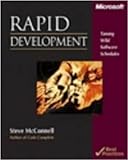Disclaimer: this is a personal entry. Which means that if you are here for technical revelations or to gather super secret information about Google, go away, or I'll bore you to death. Seriously. Don't tell me I didn't warn you.6:00 am: The iPod station starts playing and lifts me gently from the land of dreams.

"... Don't run away the time is now the place is here ..."
Sasha's swinging voice finally makes me cautiously open my eyes: another sunny day in Mountain View. The weather gadget on my iPod informs me that the temperature is currently 11 degree Celsuis, probably rising to a comfortable 21 throughout the day. I realize that I still don't know how to convert Celsius to Farenheit without accessing the Internet.
6:40 am: Armed with a gbike and a helmet I finally leave the apartment, trying to get warmed up for my workout on the 3 mile ride to work. While I pass the sporadic early jogger I can see the first rays of sunlight painting the landscape in warm colors. Pushing the pedals gets my pulse up to 150. Sweet.
6:55 am: The gym is wonderfully empty at this time of the day. With just a handful of Googlers around me I enjoy a quite workout. Today I'm torturing my upper body.
7:45 am: I end my workout with an
easy 50 minute run along Mountain View's beautiful shoreline.

Squirrels pass my way while two chatting women overtake me. I realize that I've got a long way to go before I will become a decent runner. Well, at least I can program computers.
8:50 am: Breakfast time. I get myself some freshly made scrambled eggs with crispy bacon, two chocolate croissants, some healthy orange juice and a steaming cup of coffee. Throughout the next view minutes some of my colleagues from the build tools team arrive, and a discussion about espresso machines, barbecue grills or why we don't want to discuss Agile evolves. The day can come.
9:10 am: Time to do some work! And, no, that doesn't involve foosball. Or ping pong. I'm actually
writing code. Unfortunately I am not allowed to chat about what we do, or even how we do it. So just imagine me typing. And talking to people. And typing again. More talking. More typing. You get the idea.
 12:10 pm:
12:10 pm: The hardest question at lunch time is which cafe to choose. I just run with the crowd of people working next to me. Today we're heading over to
Pintxo. One thing that constantly surprises me about food at Google is that I actually like the dessert. Chocolate cookies, sliced fruit, hot brownies, some chocolate cream topped with strawberries. Take your pick.
1:00 pm: Work, work, work. Getting some coffee. Work, work, work. More coffee. Work, work, work. Grabbing a snack, which leads to some discussion about pair programming and the state of the world in general. Work, work, work.
7:30 pm: Going to Charlie's to get my usual treat for the evening: a self-designed burger and a coke. This certainly feels like America. I meet Nicolai and his friend, who doesn't work for Google. I learn that we're allowed to bring visitors to dinner one or two times a month. We talk about real estate prices and I realize that living here is even more expensive than Munich. Dang!
 8:15 pm:
8:15 pm: I finally arrive at the apartment. I kill half an hour by starting Yet Another Blog Post. I want to write something about unit test size that features some modestly comical adult references (go figure). After some time I realize that I don't have enough high energy content for this entry. I'll finish it eventually. Blogger's shortest joke.
9:00 pm: A new episode of House starts. For some strange reason the ability to watch a show that doesn't run in Germany yet makes me feel childishly happy. This probably reveals things about my personality I don't even want to think about.
10:00 pm: The favorite part of my day is talking to my wife. And this is PRIVATE! ...
10:30 pm: Another day at Google passed. I do some reading and eventually fall asleep. Just for the reference: my dreams are private, too. Just in case you'd hoped for something. Good night!
 I just finished reading Steve McConnell's Rapid Development: Taming Wild Software Schedules. Well, many times it was not exactly "reading", more like "page-skipping". Obvious. Obvious. Obvious. But every time I thought I knew what was coming there was something unexpected hidden inside this big recapitulation of Fred Brook's findings. With big hard data pictures on the border. And then I'm horrified that I can relate to most of what is written, and that nothing's really new to me any more. Even if I didn't expect to read it from McConnell.
I just finished reading Steve McConnell's Rapid Development: Taming Wild Software Schedules. Well, many times it was not exactly "reading", more like "page-skipping". Obvious. Obvious. Obvious. But every time I thought I knew what was coming there was something unexpected hidden inside this big recapitulation of Fred Brook's findings. With big hard data pictures on the border. And then I'm horrified that I can relate to most of what is written, and that nothing's really new to me any more. Even if I didn't expect to read it from McConnell.


